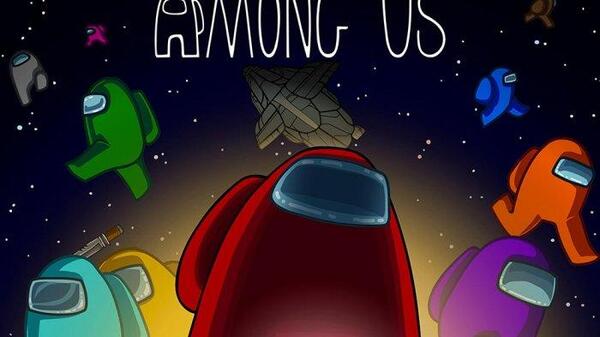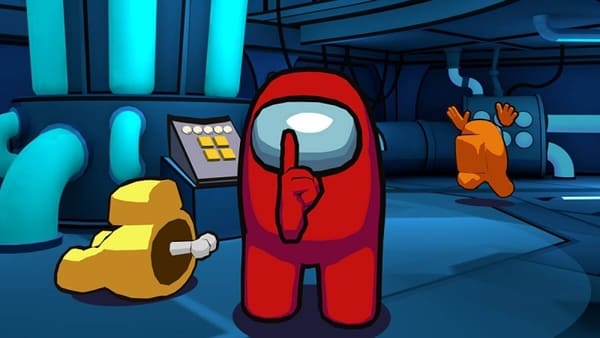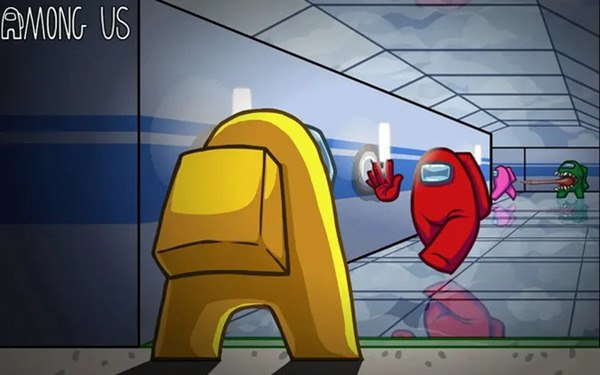Among Us, developed by InnerSloth, quickly became a cultural phenomenon upon its release, capturing the hearts of players around the world. The game’s unique blend of teamwork and betrayal highlights the intricacies of social interactions in gaming. This article delves into a specific issue within Among Us: the complexities of deception and trust, exploring how these dynamics affect player experience and gameplay strategies.
The Essence of Deception in Gameplay

Among Us is fundamentally a game of deception. Players are divided into Crewmates and Impostors, with the former tasked with completing objectives and the latter aiming to eliminate them without being detected. This core mechanic creates an engaging tension, as players must constantly evaluate the trustworthiness of their peers.
Trust vs. Mistrust
At the heart of Among Us lies the delicate balance between trust and mistrust. Crewmates must rely on their ability to read others, making split-second decisions about whom to trust. This is not merely a matter of playing the game; it reflects real-life social dynamics where trust is essential for collaboration. The stakes are raised as players navigate accusations, evidence, and the ever-present threat of betrayal.
The Psychological Toll
The psychological aspect of deception in Among Us can be profound. For Crewmates, the fear of being wrong can lead to analysis paralysis, where they overthink their decisions, potentially hindering gameplay. For Impostors, the stress of maintaining a façade while executing their plans can create an exhilarating yet nerve-wracking experience. Understanding these psychological pressures adds depth to the game, as players must manage not only their strategies but also their emotions.
Communication: The Double-Edged Sword
Effective communication is vital in Among Us, yet it can also be a source of conflict. The way players convey information can significantly impact the game’s outcome.
The Role of Discussion

In each game round, players engage in discussions to share observations and suspicions. This dialogue is crucial for Crewmates to piece together clues about the Impostor’s identity. However, these discussions can quickly spiral into chaos, with accusations flying and emotions running high. The challenge lies in balancing assertiveness and diplomacy, as players must advocate for their positions while being receptive to others’ viewpoints.
Misinformation and Manipulation
Impostors can exploit communication by spreading misinformation or sowing discord among Crewmates. This manipulation can lead to an “echo chamber” effect, where players blindly follow the majority opinion without critically analyzing the situation. Such dynamics highlight the fragility of social interactions, mirroring real-world issues like groupthink, where the desire for harmony overrides rational decision-making.
The Impact of Player Behavior
The behavior of players significantly influences the social dynamics of Among Us. Individual traits, such as assertiveness, anxiety, or competitiveness, shape how players interact and make decisions.
Personality Types in Among Us
Players bring their unique personalities into the game, which can affect their roles as Crewmates or Impostors. For instance, assertive players may dominate discussions, while more reserved individuals might struggle to voice their suspicions. This variance creates an uneven playing field, affecting the overall enjoyment and fairness of the game.
Social Penalties and Rewards

Additionally, players who are adept at deception may face social penalties when their tactics become too apparent. Conversely, those who successfully navigate the complexities of trust and deception may enjoy heightened social status within the game. This creates an intricate web of social rewards and penalties that can impact player morale and engagement.
Game Design and Its Influence on Dynamics
The design of Among Us plays a crucial role in shaping the game’s social dynamics. Elements such as map layout, task diversity, and game mechanics all contribute to how players interact.
Map Layout and Impostor Advantage
Different maps offer varying advantages for Impostors. For instance, in the Skeld, the layout allows for quick escapes after a kill, while the MIRA HQ features tighter spaces that can lead to easier identification of suspicious behavior. Understanding these design elements can inform players’ strategies, enhancing their gameplay experience.
Task Diversity and Its Role
The tasks assigned to Crewmates also influence social dynamics. Some tasks require more time and focus, making players vulnerable to Impostor attacks. Others, like visual tasks, provide concrete evidence of a player’s innocence, affecting how players interact. This task diversity forces Crewmates to adapt their strategies, continuously assessing risks versus rewards.
Cultural and Social Implications
Among Us has transcended the realm of gaming, becoming a social phenomenon that reflects broader cultural and social dynamics.
The Game as a Social Experiment

In many ways, Among Us serves as a microcosm for real-world social interactions. It highlights the complexities of trust, deception, and group dynamics, offering players insights into their own behaviors. This aspect has made the game a popular choice for social gatherings, streamers, and online communities.
Inclusivity and Accessibility
Furthermore, Among Us is lauded for its accessibility, allowing diverse groups to play together regardless of skill level. This inclusivity fosters a sense of community, enabling players to explore social dynamics in a safe, virtual environment. The game’s design encourages players to communicate and collaborate, breaking down barriers typically present in other competitive gaming experiences.
Conflict Resolution in Among Us
Given the heated discussions that arise during gameplay, conflict resolution becomes a vital skill for players.
Techniques for Effective Resolution
Players can employ various techniques to navigate conflicts, such as active listening, remaining calm, and articulating thoughts clearly. By fostering an atmosphere of respect, players can engage in more constructive dialogues, improving their chances of winning while enhancing their overall gaming experience.
The Role of Empathy
Empathy plays a crucial role in conflict resolution. Understanding that everyone is playing for enjoyment can help mitigate tensions and facilitate more positive interactions. This awareness can lead to better outcomes in discussions, where players are more inclined to consider differing viewpoints rather than resorting to hostility.
The Evolution of Strategies
As players become more familiar with Among Us, strategies evolve, reflecting a deeper understanding of the game’s social dynamics.
Adapting to Player Behavior
Experienced players learn to adapt their strategies based on the behavior of their peers. Recognizing patterns in communication, decision-making, and voting can provide crucial insights into identifying Impostors. This evolution highlights the ongoing learning process inherent in the game, where players continuously refine their skills.
Meta-Strategies and Community Knowledge
The emergence of community-driven strategies further enriches the gameplay experience. Players share tips, tricks, and tactics online, creating a meta-game that transcends individual sessions. This collective knowledge enhances strategic depth, as players experiment with new approaches and adapt to shifting dynamics.
Ethical Considerations in Deception
The nature of deception in Among Us raises ethical questions about player behavior and interactions.
The Fine Line of Deception
While deception is a fundamental aspect of the game, it can sometimes lead to negative experiences for players. Accusations, bullying, or toxic behavior can detract from the enjoyment of the game, leading to discussions about the ethical implications of gameplay. Striking a balance between engaging in deception and maintaining a positive gaming environment is crucial for the community’s longevity.
Fostering a Positive Environment
Game developers and community leaders play a significant role in fostering a respectful atmosphere. Encouraging players to practice good sportsmanship and emphasizing the importance of fun can help mitigate toxic behavior. This focus on community values reinforces the social dynamics that make Among Us a beloved gaming experience.
Conclusion: Navigating the Complex Landscape of Among Us
Among Us is more than just a game; it is a rich tapestry of social interactions, deception, and trust. The dynamics at play reflect real-world issues, offering players a unique lens through which to understand their behaviors. As players engage in discussions, navigate conflicts, and evolve their strategies, they contribute to a vibrant community shaped by diverse personalities and experiences.
By recognizing the psychological toll of deception, the importance of effective communication, and the ethical considerations surrounding gameplay, players can enhance their enjoyment of Among Us while fostering a positive social environment. Ultimately, the game serves as a compelling exploration of human interactions, proving that even in a virtual world, the complexities of trust and betrayal remain profoundly relevant.


